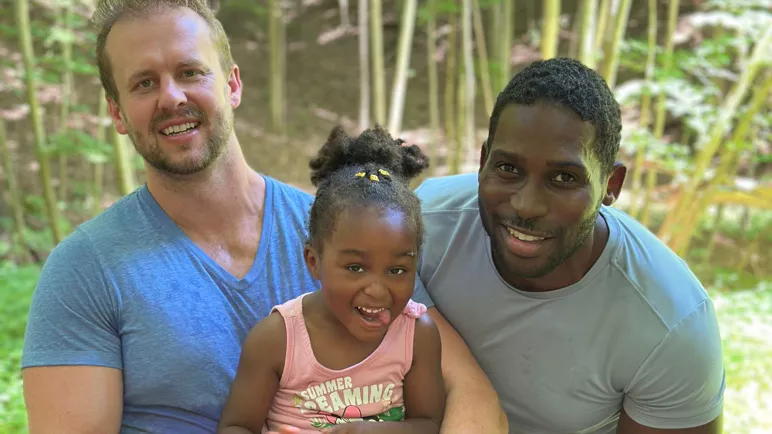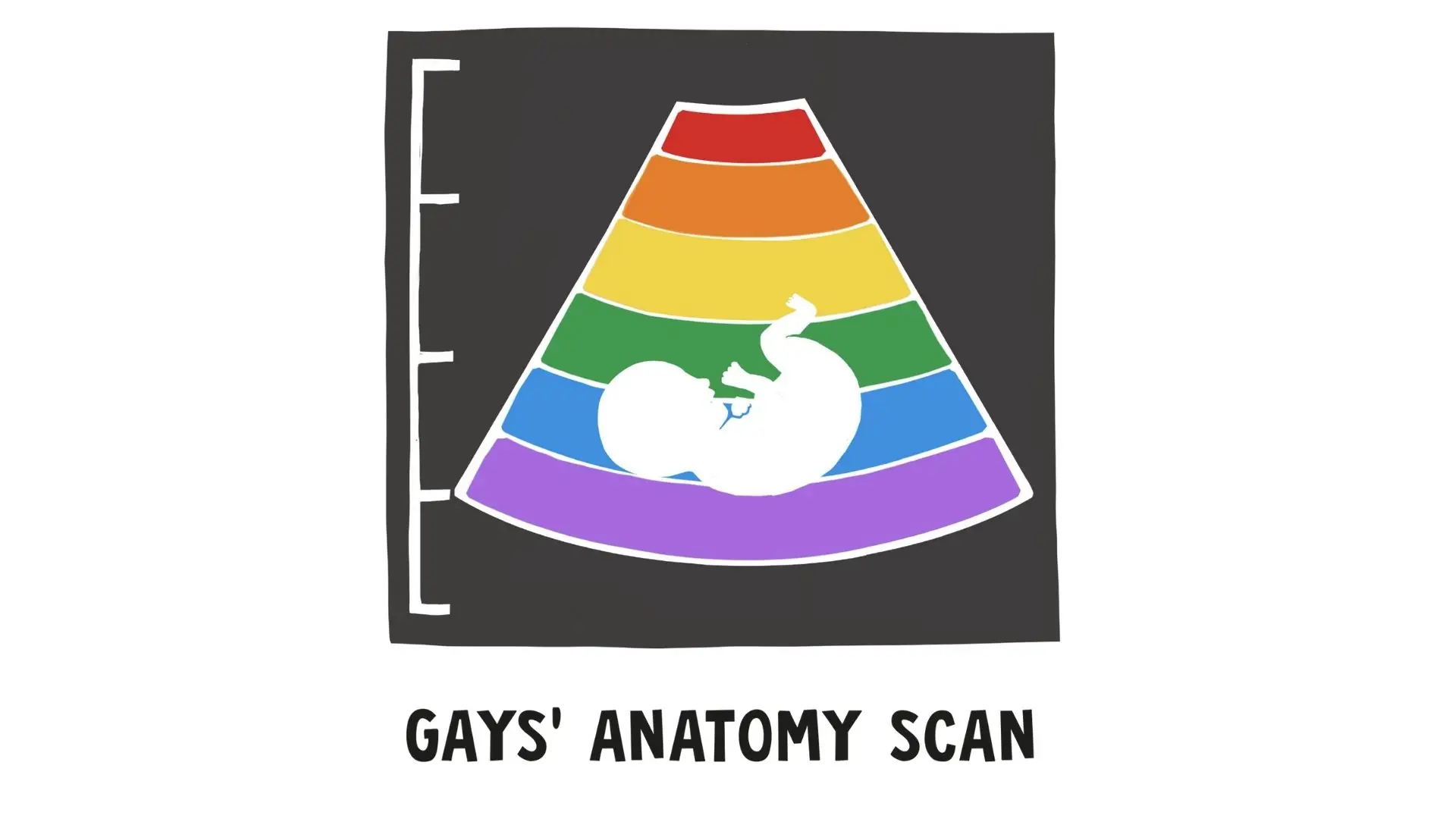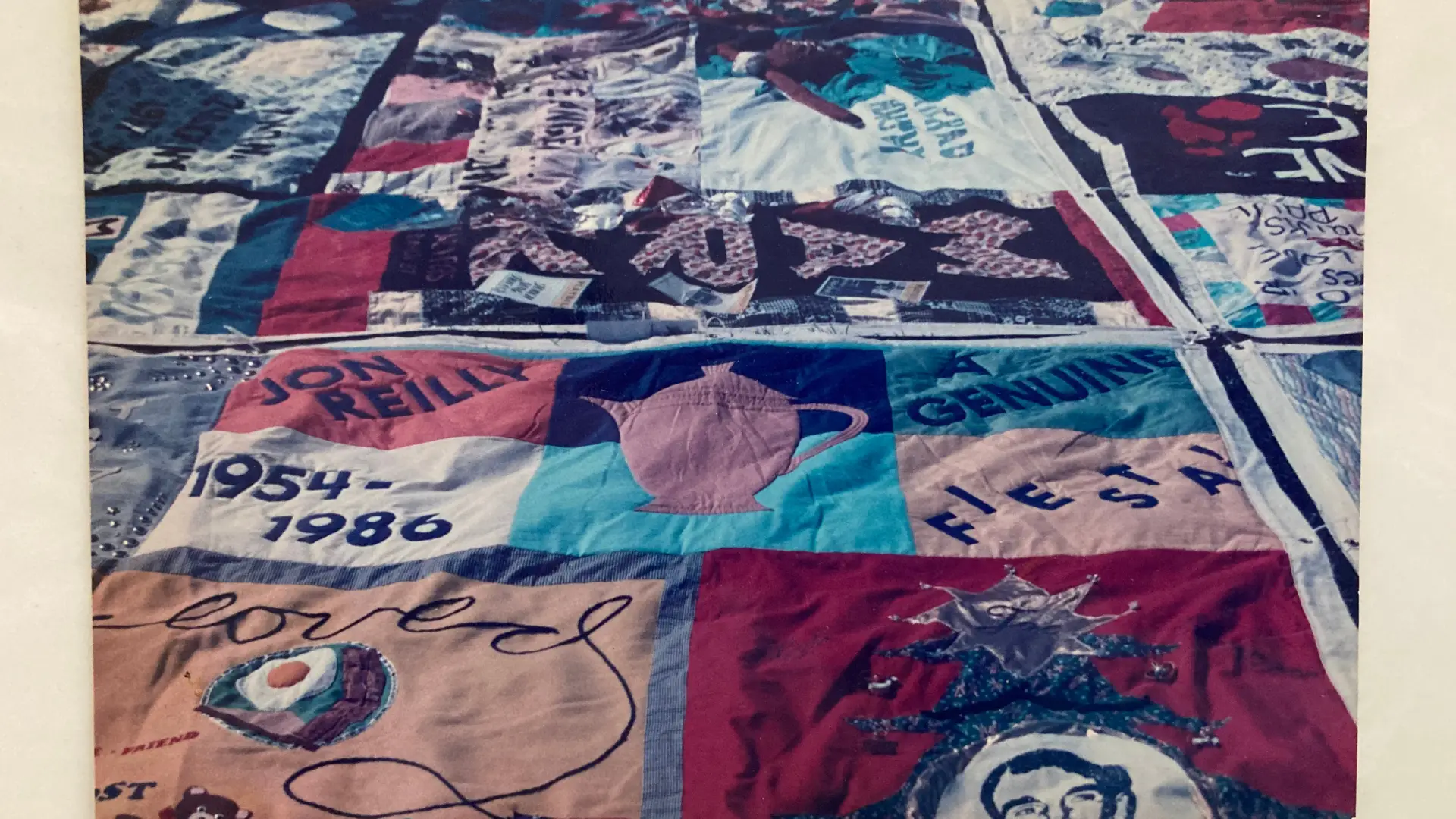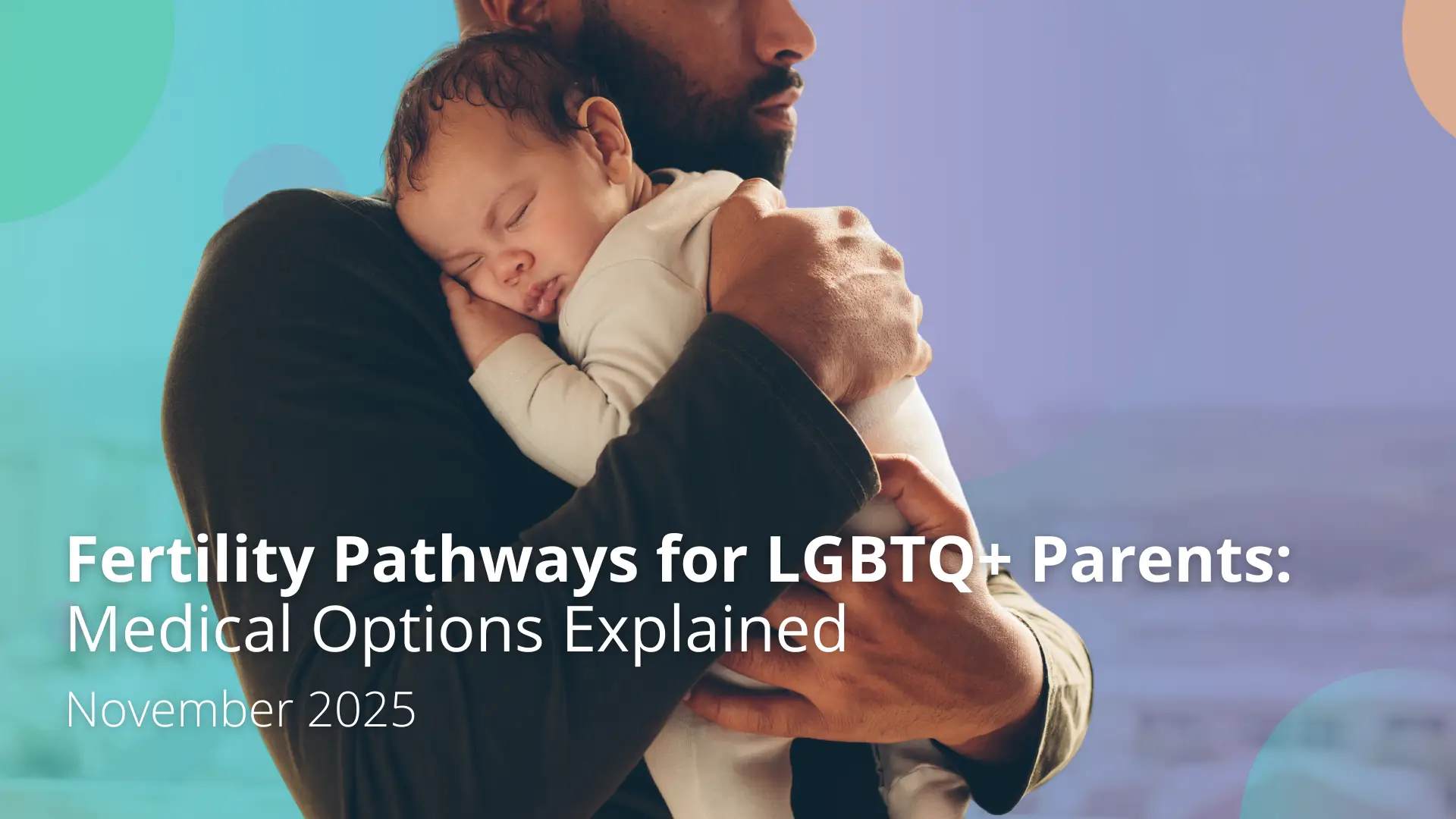Note to readers: Whenever I talk about GWK Academy, I emphasize that our first step is to help hopeful parents understand all their family-building options — including foster care and adoption. For this month’s post, I’ve invited dads Antwon and Nate to share their journey. Their story not only clears up common misconceptions about foster care; it may also inspire you to follow in their footsteps.
When Antwon and Nate Chavis became parents, it wasn’t through the path they first envisioned. Together for 12 years and married for eight, the couple stepped into foster care in 2017, imagining they would provide a temporary safe place for children in need. What happened instead reshaped their lives, expanded their definition of family, and eventually led to adoption.
“We didn’t actually start out planning to adopt,” Antwon explained. “We just wanted to be resource parents — a stable place for kids until their families were ready to have them back home. But adoption kind of found us.”
Over the years, they welcomed multiple long-term placements. Each child carried their own story, resilience, and needs. Some stayed a while before moving on. One became their daughter.
She was a child who needed a permanent home and had already found it with them. “We expected to have a rotating crew of lovable misfits,” Antwon laughed, “but instead, we had three kids who left permanent stamps on our lives.”

For Antwon, a pediatrician, foster parenting felt like a natural extension of his work. “I know the damage that can be done from the lack of stable homes,” he said. “I wanted our home to be a place where kids could feel safe and loved until their families were ready again, or until a permanent home could be found.”
For Nate, it began as a way to give back. “At first I thought of it as something abstractly good,” he said. “I didn’t realize it would change me, or how I see parenting. But it did. I’m so grateful for that.”
Day-to-day life with foster children, they both emphasize, doesn’t feel extraordinary. “Ninety-nine percent of the time, it just feels like your kid,” Nate said. “You’re packing lunches, cleaning up messes, driving to daycare. You’re just being a family.” Antwon added, “If kids sense their place is temporary, that’s unbearable. They deserve to feel like they belong — even if they’re only with you for a season.”
Being a family in foster care also extends well beyond the time a child is in their home. “Even after they leave, they’re a permanent part of us,” Antwon said. “We hope that when they look back, they remember their childhood as a time when they were loved — not necessarily remembering us, but remembering the feeling of being cherished.”
Sometimes those bonds endure. Their very first foster daughter, for example, still calls them family. Every year, they take her and her siblings shopping for back-to-school and for Christmas. “It’s a blessing,” Antwon said. “She knows she’ll always have us in her life, in some capacity.”
The couple also stressed that foster parenting is not just about what you give, but what you receive. “The love that comes back from these kids is incredible,” Nate reflected. “It’s changed how I see the world.” They’ve also built deep connections with certifiers, case managers, and other foster families — the “village” that makes this work possible. “Those relationships matter,” Antwon said. “You don’t do this alone. You need people around you who get it.”
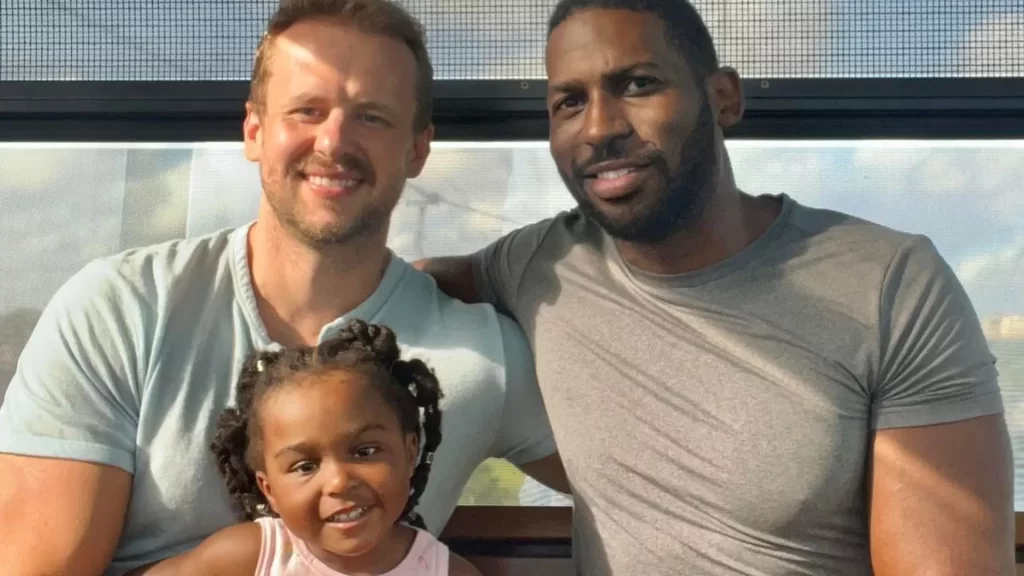
These experiences have reshaped not only their approach to parenting but also Antwon’s perspective as a pediatrician. “I’m more empathetic to struggling parents. Foster care isn’t about poverty — it’s about safety. Most parents love their kids and just need resources or support. I bend over backwards now to help them, because I know how important that chance is.”
For people who are considering foster care, Nate encourages them not to let fear hold them back. “The day-to-day is just parenting. Yes, the fear of losing them is real. But even if you only have a child for a short time, it’s worth it. I wouldn’t change it.”
Antwon added, “People say, ‘I couldn’t do it, it would hurt too much.’ But the kids don’t get to choose. They’re already going through it. Wouldn’t you rather they go through it while knowing love? Anyone who’s considering parenting can foster. You just have to be willing.”
Through every placement, every goodbye, and now as adoptive dads, Antwon and Nate’s story is one of resilience, compassion, and unwavering love. It’s a reminder that parenthood can take many shapes — sometimes temporary, sometimes permanent, but always powerful.
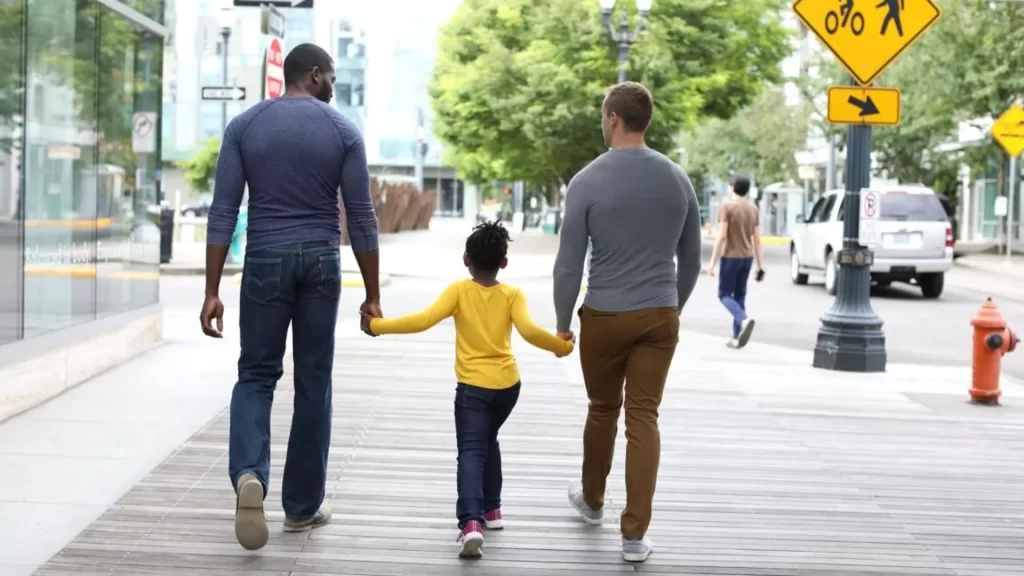
“Sometimes love is keeping a child for a season,” Antwon reflected. “And whether they stay or go, they deserve to leave knowing they were cherished.”
At GWK Academy, we believe every path to family — IVF, surrogacy, adoption, and fostering — is valid and beautiful. And as Antwon and Nate’s story shows, the foster system is full of children who are simply waiting for someone to love them, even if only for a season.
[This article] was originally published on LGBTQ Nation.

